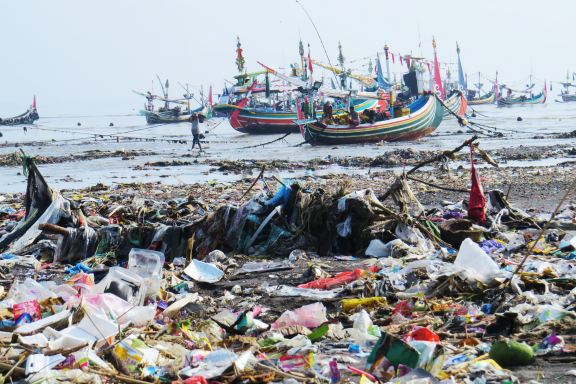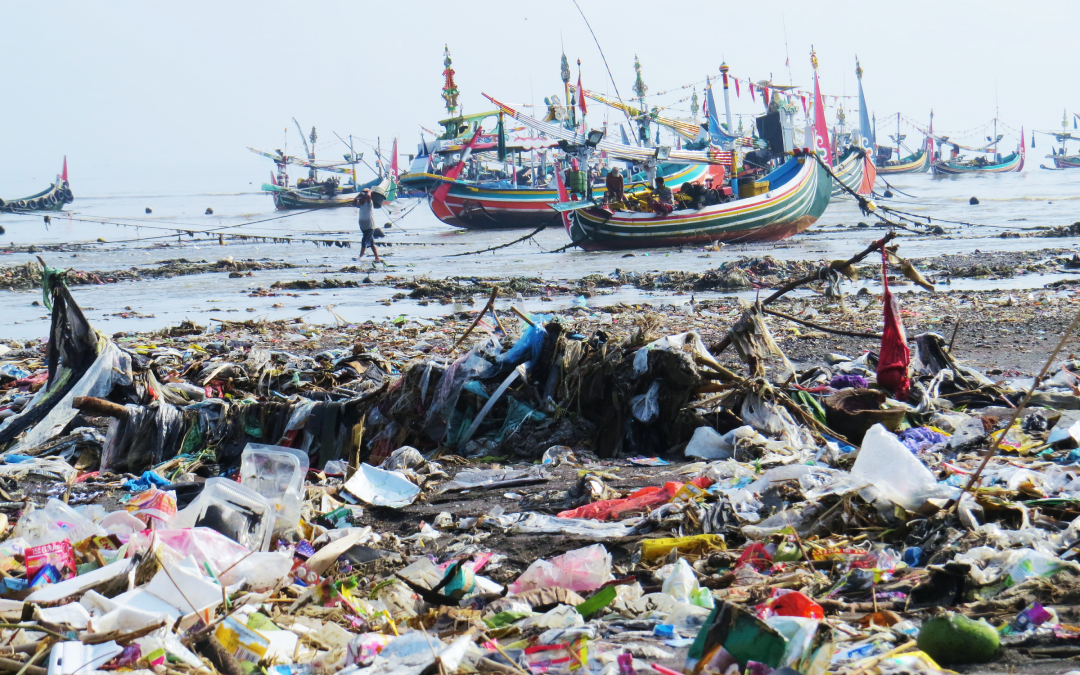The monsoon season has begun in Indonesia, and in Muncar it is raining almost every day. The rains wash vast volumes of trash from East Java’s many streams and rivers out into the ocean. While marine debris is an issue that I was already aware of, what I did not know was how much it affects the livelihoods of small-scale fishermen.
The Sustainable Fisheries team conducts regular port monitoring surveys, and these provide a great opportunity to talk to fishers and learn about their daily lives. This week fishers have been returning to port much earlier than usual. The arriving rains mark the end of the fishing season, and for a few months it is harder to catch fish. But in recent years, the rains have also brought an additional challenge, and it is one that gets worse every year.
Madi, a drifting gillnet fisherman from Muncar, explained, “During the rainy season there are more plastic bags, bamboo and other trash floating in the ocean. Especially during the falling tide, this trash can become tangled in our nets. It takes us a long time to clean our nets after fishing, and sometimes they can become torn or damaged. Whereas usually I will set my nets three or four times per night, at the moment I only have time to set once.”.

The monsoon rains wash marine debris onto the shorelines around Muncar’s fisheries
Marine debris is a major threat to ocean health, affecting marine species and their habitats.By 2050 there will be more trash than biomass in the ocean according to the Ellen MacArthur Foundation. Indonesia is the world’s second biggest ocean polluter, exceeded only by China.
But there is hope. Via the United Nations Clean Seas Campaign, Indonesia has committed to reduce marine plastic debris by 70% by 2025. Our government is creating a National Plan of Action for Marine Plastic Debris that will contain integrated strategies for keeping Indonesia’s lands, coasts and seas free from trash.
In coastal areas such as Muncar the impacts of marine debris on local environments, communities and economies is clear. Muncar is a hotspot where solutions to this problem are urgently needed. Alongside the developing national initiatives, there is a need for immediate local actions, including improving waste management and increasing the information and education available to local communities.
During my conversations with fishers this week I have learned a lot. While I knew that marine debris is a major threat to marine wildlife and ecosystems, I now have a better appreciation of the impacts on coastal communities and their livelihoods.


